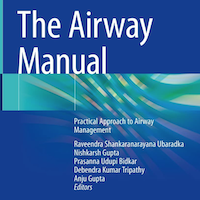Stories Category: Intensive Care

Physiological Responses to In-Bed Cycle Ergometry Treatment in ICU Patients with External Ventricular Drainage
These data suggest that supine CE in a heterogeneous cohort of neurocritical care patients with EVDs is safe and tolerable. Larger prospective studies are needed to determine the efficacy and optimal dose and timing of supine... read more

PPIs Should Not Be Prescribed for Upper GI Bleeds
The topic of PPIs for upper GI bleeds was one of the first posts on First10EM. There is no new evidence, and the bottom line is the same (just don’t use them), so if you are a long time reader, you can probably skip this... read more

Long-term Outcomes of Hospital Survivors Following an ICU Stay
Australian patients admitted to ICU who survive to discharge have worse long-term survival than the general population, except for the elderly admitted to ICU following cardiac surgery. These findings may assist during goal-of-care... read more

Principles of Critical Care
Quickly and accurately diagnose and treat the critically ill patient with guidance from the field's definitive text. Considered the field's definitive text, Principles of Critical Care offers unmatched coverage of the diagnosis... read more

How Autoimmune Disease Risks Increases After COVID-19
The link between COVID-19 infection and development of autoimmune disease is becoming more pronounced, and fields including dermatology are seeking answers to what drives it all. A late-breaking session at the American... read more

Pleural Resident Macrophages and Pleural IRA B Cells Promote Immunity Against Pneumonia
Airway infection is a major cause of mortality worldwide. The identification of new mechanisms aiding in effective host immune response is therefore required. Here, we show that the specific depletion of the pleural immune... read more

tPA for Critically Ill ICU Patients with COVID-19: Does Alteplase Help?
How do you define a last-ditch effort to save someone's life from COVID-19? Perhaps giving tPA to a severe COVID patient? At this point, I am certain many of us have attempted, with informed consent of course, therapies for... read more

Thromboinflammation and Antithrombotics in COVID-19
Thrombotic complications of SARS-CoV-2 infection were recognized early in the pandemic, when infected patients often presented with abnormal coagulation findings and acute macrovascular obstruction, and evidence of pulmonary... read more

Pulse Oximetry Waveform: A Non-invasive Physiological Predictor for the ROSC During CPR
Pulse oximetry plethysmography (POP) may be a novel and effective method for predicting return of spontaneous circulation (ROSC) during resuscitation, with a prognostic value similar to ETCO2 at early stage. 150 out-of-hospital... read more

Use of ECMO in Acutely Poisoned Pediatric Patients in US
Extracorporeal Membrane Oxygenation (ECMO) may improve the hemodynamic and metabolic status of poisoned pediatric patients. Persistent hypotension, acidemia/acidosis, and elevated Pao2 after 24 hours of ECMO were associated... read more

High Dose Insulin and Euglycemia Therapy for Beta-adrenergic Receptor Treatment and Calcium Channel Antagonists Overdose
High dose insulin with dextrose supplementation is indicated for patients with calcium channel blocker and beta blocker overdose and signs of cardiac toxicity. Mechanisms are not completely elucidated, but mostly related... read more

Hemodynamic Management Challenges of Septic Shock
Sepsis is one of the main causes of admission to the Intensive Care Unit (ICU). It is defined as a life-threatening organ dysfunction, caused by dysregulated host response to infection (Singer et al. 2016). Septic shock... read more

Moderate Procedural Sedation and Analgesia
Introducing the definitive resource designed for practitioners working in the rapidly expanding area of moderate procedural sedation and analgesia clinical practice. Moderate Procedural Sedation and Analgesia: A Question... read more

General Anesthesia vs. Sedation Using Hemodynamic Control During Intraarterial Treatment for Stroke
The functional outcomes 3 months after endovascular treatment for stroke were similar with general anesthesia and sedation. Our results, therefore, suggest that clinicians can use either approach. Of 351 randomized patients,... read more

Prone Position Minimizes the Exacerbation of Effort-dependent Lung Injury
Prone position, independent of positive end-expiratory pressure levels, diminishes a maldistribution of lung stress and inflation imposed by spontaneous effort and mitigates spontaneous effort, resulting in less effort-dependent... read more

Vasopressor Choice and Timing in Vasodilatory Shock
Vasodilatory shock is the most common form of circulatory shock encountered in patients admitted to the intensive care unit (ICU). Sepsis is the predominant etiology, but other causes of vasodilatory shock include postoperative... read more

Music Therapy Intervention to Treat Sedation-Related Delirium in Critical Care
Sedation is an essential component of treatment for some patients admitted to the intensive care unit, but it carries a risk of sedation-related delirium. Sedation-related delirium is associated with higher mortality and... read more








